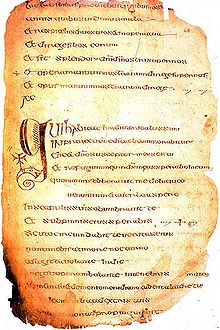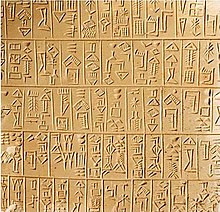
When the first set of symbols took hold to bring a city or kingdom the written word in Sumer around 3500 BCE, it was likely met with resistance. “What do we need this for? This is going too far. We’re going to lose our oral tradition, and then where will we be? Our civil order will be destroyed.” Sounds ridiculous, you say? Well, reactions by communities then weren’t that different from citizenry now to media we have made part of our everyday lives.
Before Language Was Written
Obviously, humans used speech to communicate prior to written language. From its humble beginnings of grunts and defensive yelling, language became sophisticated to the point of being a medium of education. In Will Durant’s masterpiece, The Story of Civilization, he refers to primitive peoples as the natural man. Education among those folks was mainly “the transmission of skills and the training of character.” By the age of 10, in the Omaha tribes, a boy had learned all he needed for life. Among the Aleuts, the boy of 10 had moved out of the parents’ sod-covered house, found his own place and sometimes a wife.
Children were taught verbally and by showing. Their memories were strong, learning happened and the information they needed was retained for the sake of survival. The people recited the stories of their culture and personal history, passing them on to generation after generation. Presumably, they didn’t forget what they needed to know and they didn’t lack for knowledge. At least, that’s how they felt about it.
And Along Came the Writer
Durant speculates on the possibilities of writing’s origin. Pottery was being crafted before language sought a tangible medium, so perhaps the potter needed to identify his work with “trade-marks.” Commerce and trade very well may have created the necessity to label the work and make records of transactions and such. Numerals may have been among the earliest intentional markings. Fingers drawn to denote numbers may have led to a symbol for a hand showing five fingers that eventually became a “V” in Roman numerals. Two “V’s” made ten, thus an “X.”
Durant wrote, “Doubtless the invention of writing was met with a long and holy opposition, as something calculated to undermine morals and the race. An Egyptian legend relates that when the god Thoth revealed his discovery of the art of writing to King Thamos, the good King denounced it as an enemy of civilization. ‘Children and young people,’ protested the monarch, ‘who had hitherto been forced to apply themselves diligently to learn and retain whatever was taught them, would cease to apply themselves, and would neglect to exercise their memories.’ ” Sounds like parents’ concerns over TV, video games and screens in general.
Attitudes were not all negative, though. Written material was thought to have magical powers. There’s a story about Naneferkaptah, who was a son of Pharaoh Mernebptah, in which Naneferkaptah uses a method for memorization of content of a book. To start, he obtained a sheet of new papyrus. The following quote is a from a later book titled, Setne Khamwas and Naneferkaptah. “He wrote on it every word that was in the book before him. He soaked it in beer, he dissolved it in water. When he knew it had dissolved, he drank it and knew what had been in it.” This was not an uncommon belief that ingesting the written word was how to fully internalize its power.

The theory that writing was invented by gods or God has been quite popular down through the centuries. Some would say that Moses was the first to introduce it with his tablet containing the Ten Commandments. The Israelites passed it on to the Canaanites or Phoenicians north of them and the Egyptians to the south and it was spread throughout the world from there. Interestingly, some of these gods were identified as the world’s first scribes. I like that. It’s such a lofty position for a writer back in the day.
Languages With No Writing Today
I find it surprising that there are approximately 7000 languages spoken on this planet currently. Approximately 50 percent of them have no written form. Half the population speaks 23 of those languages. Nearly 3000 are considered endangered. In areas where there are many languages used among a relatively small number of people, it is found they also have tremendous biodiversity. It would seem these are tropical climates and industry has not really flourished there. In those places, writing has not been found necessary. They have a great deal of impressive knowledge about their plant life and habitat that has not been recorded. Each generation is trusted to pass the information down to the next one orally. From all indications, they have been doing an outstanding job of it.
Conclusions
As commerce grows, there is a bigger need for keeping track of your stuff. Markings identified merchants’ stuff. Numerals and pictographs and symbols all helped get writing started. Communication across distance became appealing and chronicles lent importance as well as status to individuals right on up to kingdoms. For a piece of clay or stone or parchment to convey ideas was seen as magical. Later, it was considered a foundation of civilization and later still a form of lofty art. Where would we be without it? I’m not sure about that, but I would be missing one huge purpose in life.
